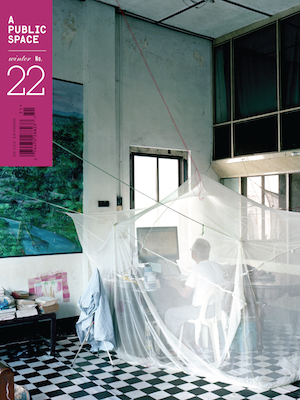Fiction
Mentor
Garth Greenwell
Log in to read the rest.
If you are a subscriber but do not currently have online access, please contact us to link your subscription at subscribe@apublicspace.org
Not a subscriber?
Not yet a subscriber? Join us now, and become a part of the conversation.
About the author
Garth Greenwell is an Arts Fellow at the Iowa Writers’ Workshop. His first novel, What Belongs to You, is forthcoming in September from Farrar, Straus & Giroux.
